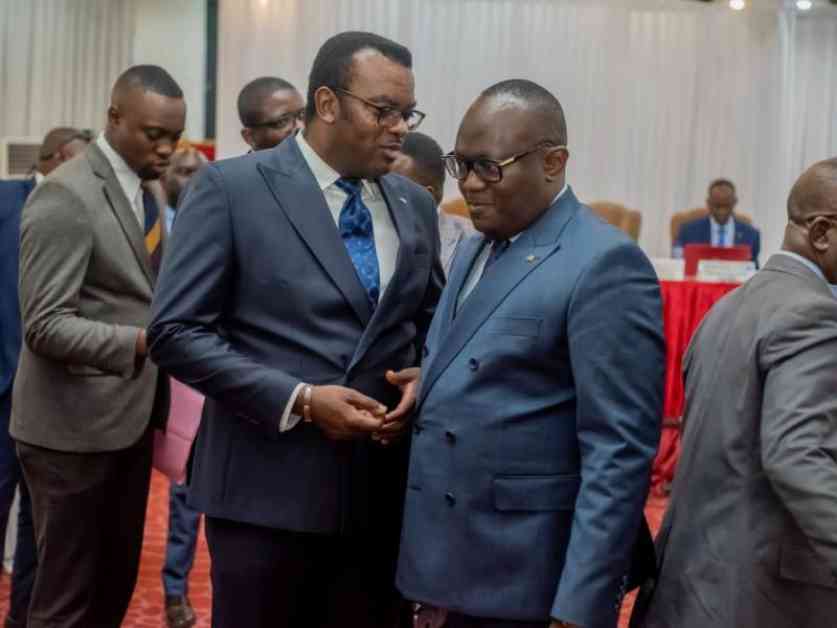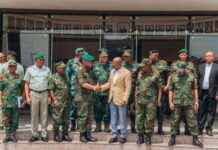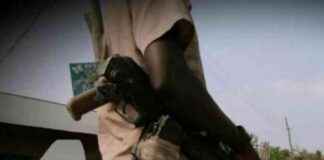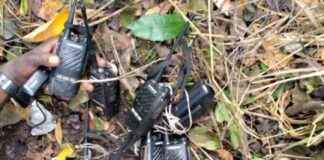In a recent political development, the national deputy Guy Mafuta Kabongo, president of the Economic, Financial, and Budgetary Control Commission (ECOFIN) of the National Assembly, has announced the commencement of a series of audits of government members. The aim is to ensure that the defense and security sector has the necessary resources to combat the aggression from Rwanda in the Eastern part of the country. This initiative comes as a response to the ongoing conflict in the region, highlighting the importance of adequate funding and efficient management in addressing the situation.
On Thursday, March 6, Guy Mafuta revealed that the Vice Prime Minister of Public Service, Jean-Pierre Lihau, was the first to appear before the commission for the audit. Subsequently, other key officials, such as the governor of the central bank, the minister of budget, finance, and defense, are scheduled for similar sessions. The decision to conduct these audits stemmed from a resolution passed during an extraordinary session, emphasizing the need for a clear expression of funding requirements to strengthen the security and defense sector.
Speaking to the press, Guy Mafuta emphasized the significance of not only identifying the financial needs but also ensuring transparency and accountability in the management of allocated funds. This dual approach aims to streamline expenditures, explore additional resources, and bolster funding for the defense and security sector. The focus is on optimizing resources to effectively combat external threats and safeguard national sovereignty.
Amidst the challenges posed by the Rwandan aggression, Guy Mafuta highlighted the importance of sustaining government operations and supporting civilians living in conflict-affected areas. The commission’s role extends beyond financial oversight to encompass strategic planning and resource allocation in response to the crisis. By engaging in dialogue with key stakeholders and formulating policy recommendations, the ECOFIN commission strives to address the immediate needs of the population and enhance the government’s capacity to counter external threats.
Commitment to National Security
Guy Mafuta reiterated the commitment of the State and the National Assembly to uphold national security and protect the interests of all Congolese citizens. Through a collaborative effort between the executive and legislative branches, the aim is to devise a comprehensive strategy that addresses the root causes of the conflict and restores peace and stability in the region. By leveraging the expertise of the ECOFIN commission and leveraging its authority as a budgetary entity, the government seeks to demonstrate resilience and determination in the face of adversity.
Presidential Support and Public Engagement
The decision to conduct these audits aligns with the vision of the Head of State, who has prioritized the allocation of resources to the defense and security sector in response to the escalating conflict. This proactive approach underscores the government’s responsiveness to emerging threats and its commitment to safeguarding national interests. By engaging with the affected communities and soliciting feedback from frontline officials, the government aims to demonstrate empathy and solidarity with those directly impacted by the conflict.
In conclusion, the ongoing audits of government members represent a proactive step towards enhancing the country’s defense and security capabilities in the face of external aggression. The collaborative efforts of the ECOFIN commission, led by Guy Mafuta, underscore the government’s commitment to addressing the root causes of the conflict and providing sustainable solutions for lasting peace and stability. As the nation navigates through these challenging times, the collective resolve and determination of all stakeholders will be pivotal in securing a brighter future for the Democratic Republic of Congo.

















